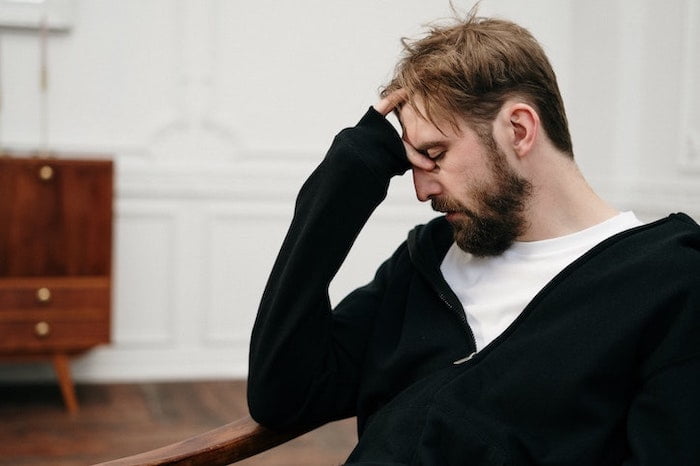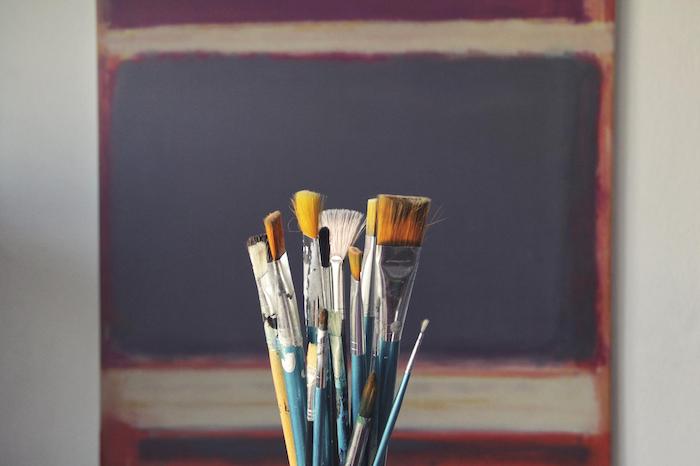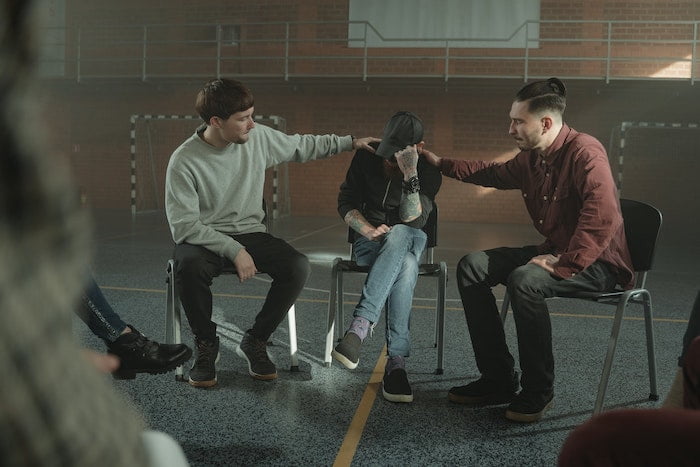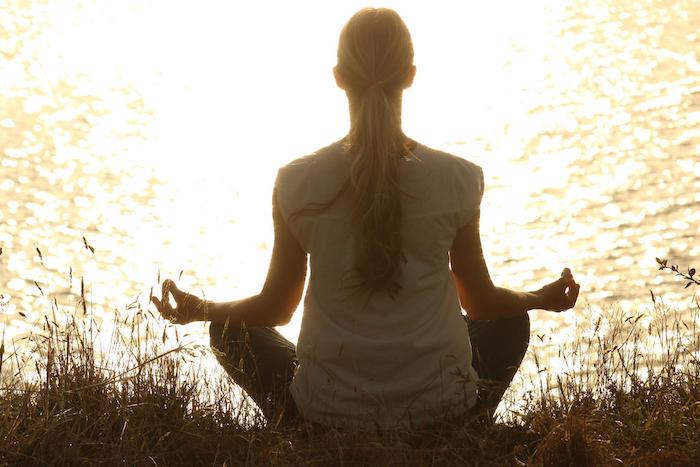Drug & Alcohol Rehab in Aberdeenshire
If you’ve been in the grip of addiction for a long time, you might feel like there’s no hope left for recovery. But it’s never too late to make a lasting change in your life.
Drug and Alcohol Rehab in Aberdeenshire is easy to access – you just need to know where to look. That’s where OK Rehab comes in. If you contact our helpline, we’ll be able to direct you to treatments that fully fit your specific needs.
We recognise that every individual case of addiction needs to be handled differently, as every case of addiction itself is different. Even just beyond the multitude of addictive substances that can wreck the lives of those who fall victim to them, people can have different traumas and mental health issues.
It even often comes down to different personalities, meaning patients may respond differently to different treatments.
Across Scotland, there was a record of 1339 drug-related deaths in 2020. This was the highest rate of drug deaths in and across Europe. [1]
In 2020, there were around 33 wholly drug-related deaths in Aberdeenshire:
- 56 in Aberdeen
- 33 in Aberdeenshire
- 14 in Angus
- 57 in Dundee
This was a 6% rise from 2019, most likely the result of the COVID pandemic that took the world by storm. This means that Scotland has the highest rates of drug deaths per capita than anywhere else in Europe, with Sweden and the UK sitting comfortably at 2nd and 3rd highest.
The biggest killer is stated to be opiates, mainly heroin. The second most deadly drug in Scotland in 2019 was Benzodiazepines such as fake Xanax and street Valium. Commonly these are mixed, so poly-drug use is becoming a substantial issue.
Benzodiazepines cost as little as 50p per pill. This price drop has contributed to over 800 deaths, most of which involve etizolam with its hypnotic and sedative-like properties. These and other benzodiazepines are often misused by opiate users, typically to increase the effects of heroin.
The risk of overdose is catastrophic. Street ‘benzo’ and alcohol, once mixed, have parallel effects on the body. Poly-using these substances cause the heart rate and respiratory system to calm in function, depressing the system and leaving you vulnerable.
Valium was commonly prescribed through the NHS, but has recently seen a spike in non-prescribed benzodiazepines, stronger than the prescribed pills.
There is currently an ageing population of drug users and addicts in Scotland, mostly concerning males that are over 35. In 2021, 68% of drug deaths were users over 35, even up to the age of 54.
This is not to say the younger generation is clear from this problem. There was an increase of 6% of 15–25-year-old deaths.
These deaths take place mostly in urban areas, such as Glasgow and Dundee. This has been attributed to the lack of opportunities from both education and employment, where the less developed areas are seeing spikes in drug use.
A systemic problem is evident here:
- Dundee council has reported an average of 0.36 deaths per 1000 drug deaths in Scotland over the past few years.
- Glasgow has reported an average of 0.35 deaths per 1000 drug-related deaths
- Edinburgh reported 0.17 deaths per 1000 drug-related deaths
Dundee appears to have the highest developed drug problem. The concrete jungle of Glasgow was overtaken by Dundee with the worst death rates in 2017 from drug use.
Dundee has an average of 150,000 people, more than 70 of which die drug-related deaths. This is shocking, and Aberdeenshire now requires an immediate action plan to relieve the area of such statistics.
Aberdeenshire not only has an issue with drug use, but alcohol use and alcoholism. [2] Alcohol-related deaths rose by at least 17% in 2021, reaching the highest level of alcoholism for over a decade.
It is no doubt this was exacerbated by the lockdown, as there were over 1,190 deaths from alcohol last year, around 200 more than that of the previous year. [3]
Local statistics showed that:
- Men are twice as likely to die from alcohol-related deaths
- The leading cause of death was liver disease and mental disorders caused by alcohol
- Most deaths reported were people in their 50s or 60s
- Deprived areas had 4x as many deaths as those in wealthier areas
This has meant that Scotland has had the highest rate of alcohol-related deaths across all of the UK since 2001. The average alcohol death rate is 20.5 deaths per 100,000 population. England and Wales’ statistics have remained similar, with relatively low figures.
Some of these statistics have been attributed to the constant bad weather, and ill-mental health consequently. This is sometimes called SAD, seasonal affective disorder. This is a type of depression that comes and goes in a seasonal pattern, sometimes known as winter depression.
The symptoms of SAD:
- Feeling depressed
- Losing interest in activities
- Change in mood with the weather
This is accompanied by a lack of education and job opportunities, leading many people to start using and becoming addicted.
At a rehab in Aberdeenshire, you can be treated for a number of addictions, including alcohol; caffeine; cannabis; hallucinogens; inhalants; opioids; sedatives, hypnotics, and anxiolytics; stimulants; and tobacco.
Signs and Symptoms of Addiction

Generally, addiction symbolises lack of control and the inability to stop doing or using something. This often leads to anti-social behaviour such as lack of relationships, reduction in commitments and activities and lying about a variety of things such as money.
Alcohol addiction is unfortunately common, with a study by Robin Room, Thomas Babor and Jürgen Rehm revealing that ‘4% of the global burden of disease is attributable to alcohol’, accounting for almost as much death and disability as tobacco and high blood pressure (hypertension) globally.
Addiction can usually be spotted when there are significant changes in behaviour and attitude, along with changes in appearance such as:
- Track marks (needle marks)
- Shaking and tremors
- Poor personal hygiene
- Financial issues such as large loans
There is a simple way to discover whether you or a loved one has an alcohol dependency, or is showing signs of hazardous drinking.
This CAGE questionnaire is part of clinical history, and can be adapted to cater for drugs:
- Have you ever felt you should CUT down your drinking? YES/NO
- Have people ever ANNOYED you by critiquing your drinking? YES/NO
- Have you ever felt bad or GUILTY about your drinking? YES/NO
- Have you ever had a drink first thing in the morning to steady nerves or in order to get rid of a hangover? YES/NO
Yes is 1 and no is 0. If you score over 2 points, then it is said to be of clinical importance that you seek help.
This questionnaire is extended, into the Alcohol Use Disorders Identification Test, called the AUDIT. The is recommended by the World Health Organisation. [5]
This is more detailed than the CAGE questionnaire, and is scored out of 40 for 10 questions.
Audit Questionnaire (alcohol use disorders identification test):
- How often do you have a drink containing alcohol?
- How many units of alcohol do you drink on a typical day when you are drinking?
- How often have you had 6 or more units if female, or 8 or more if male, on a single occasion in the last year?
- How often during the last year have you found that you were not able to stop drinking once you had started?
- How often during the last year have you failed to do what was normally expected from you because of drinking?
- How often during the last year have you needed an alcoholic drink in the morning to get yourself going after a heavy drinking session?
- How often during the last year have you had a feeling of guilt or remorse after drinking?
- How often during the last year have you been unable to remember what happened the night before because you had been drinking?
- Have you or someone else been injured as a result of your drinking?
- Has a relative or friend or a doctor or another health worker been concerned about your drinking or suggested you cut down
This test and questionnaire was created in 1982, and remains in effect to this day. If you score highly or suspect another person to be suffering from drugs or alcohol, you may require some help. The first step, before going or thinking about going to rehab, is intervention.
If You Suspect Misuse: Intervention

Intervening is the act or process of prevention, or altering the course of something to change the end result. In reference to drugs and alcohol, intervention is the act of intervening in the use of drugs and alcohol to prevent the issue from worsening.
The ultimate aim is to get the user to admit they have a problem, in the hope they attend a rehabilitation facility. Intervention can motivate users to seek help when struggling with addiction or dependency on substances.
A conversation is the best way to make someone feel comfortable, but also understand and acknowledge the effect they are having on others and their own life. Those who struggle with addiction are usually in denial, so this is a perfect opportunity to have an open conversation about their behaviour in order to motivate them to change.
This planned process can be done by friends, family, or a specialist. It is a confrontation of sorts, but not a place to directly state that they have an issue as this will seem aggressive or demining.
A way to do this is by providing examples of their behaviour that worries or affects you in a certain way, explaining how it makes you feel. You can also offer them a treatment plan with clear and attainable goals with specific guidelines.
Here is a simple guide for intervention:
- Make it a comfortable space, this can be their home or a place where they spend a lot of time.
- Make a plan. Gather available information where you can and involve the people that are most affected by the users behaviour.
- Hold the conversation and follow this up, this can include noting specific changes and patterns to avoid relapse and support them the whole way.
The CRAFT approach to intervention is community reinforcement and family training. This is a specialised intervention as a form of counselling. This approach is aimed at involving those whose lives are intertwined with the addicted person’s life, called concerned others (CO).
CRAFT has three main goals: [6]
- Improve the lives of the significant others
- Reduce the patients addiction behaviour and habits. This is the main aim.
- Influence the patient to the point they begin treatment for addiction
CRAFT was developed on behavioural principles and motives. The COs must ignore negative, anti-social and pro-using behaviour, and reward social and non-using behaviour. This is not confrontational like standard interventions; CRAFT is almost 90% effective as supportive therapy for natural motivation.
This positive approach focuses on mental well-being, and is culturally sensitive. The process works parallel with their morals and beliefs, emphasising the acknowledgement of coping skills and behavioural changes.
CRAFT helps COs accept and highlight the users behaviour, reinforcing positive behaviour and letting the consequences play out for bad behaviour. Once you have motivated the user to enter rehab, it’s good to know what is on offer in the area you reside in, such as Aberdeenshire.
Rehab on Offer in Aberdeenshire

The common conception of rehab comes from social media, mostly from the inpatient rehabs the celebrities attend when they struggle with addiction. This is a misconception, there are more than one type of rehabilitation and therapy, the main two are:
Inpatient: this is the expensive type of rehab you usually see on social media. This is where the patient lives in the facility for a period of time, and this is not usually covered by the NHS.
The cost of inpatient treatment can range from 14-70,000 per week. This cost covers an array of areas, such as rent and food, medication and staff training. The usual time advised to stay in a clinic is around 28 days, depending on the nature of your addiction.
Outpatient: Unlike the strict regime of inpatient treatment, during outpatient treatment you will still live at home but attend therapy sessions at the facility and stick to the course allocated to you. It is up to you and your GP what type of therapy you need and how bad your addiction is.
Other Free Organisations to Consider
Below is a list of other organisations that offer free support for addiction around Aberdeenshire:
1. Alcohol & Drugs Action
Address: 7 Hadden St, Aberdeen AB11 6NU
Telephone: 01224 577120
Website: http://www.alcoholanddrugsaction.org.uk/
2. Addaction
Address: 480 Union St, Aberdeen AB10 1TS
Telephone: 01224 218120
Website: https://www.wearewithyou.org.uk/help-and-advice/
3. Turning Point | Scotland Aberdeen Substance use, Support Engagement and Treatments
Address: 9 St Peter St, Peterhead AB42 1QB
Telephone: 01779 470490
You can also reach out to various helplines, such as Mind UK, YoungMinds, Rethink Mental Illness, Samaritans and Papyrus, SMART Recovery or find an Alcoholics Anonymous, Narcotics Anonymous or Cocaine Anonymous near you. The NHS are also there to provide you with help.
To begin your recovery journey today, call our 24-Hour Helpline: 0800 326 5559
Detox in Aberdeenshire

There are different types of rehab available depending on the substance. For example, alcohol and heroin are physically addictive, unlike cocaine and cannabis. This means you will be required to detox first to rid of the toxins in your system.
Detox will inevitably lead to withdrawal symptoms, and the first wave of these can leave you with convulsions, vomiting and seizures. One way of curbing the detox and withdrawals for alcohol addiction is through pharmacological intervention.
This is a Librium-based detox (Chlordiazepoxide), carried out over a 10-day period. Librium helps rebalance the communications that have been damaged in your brain from the addiction, as your neurons will have been altered in this process.
Librium is a benzodiazepine, which is addictive and why the process is only 10 days long to prevent the risk of further addiction. It aids the symptoms of anxiety with a sedative effect, helping you through the first wave of withdrawal symptoms.
For heroin, there are a variety of medical treatments to treat withdrawal symptoms. All pharmacological interventions aid the restoration of functioning in the brain. [7]
Opioid addiction will cause withdrawal symptoms such as chronic diarrhoea and vomiting, and this can be treated by lofexidine, which is FDA-approved. This medication is designed to reduce withdrawal symptoms, as Librium does, working on the opioid receptors the drugs have damaged.
There are three types of medication for opioid withdrawals:
- Agonists (activate opioid receptors)
- Partial agonists (activate opioid receptors with a smaller response)
- Antagonists (block the receptor and interfere with the rewarding effects of opioids)
Other medications:
- Methadone is of the first variety, an opioid agonist. This is administered orally in order to be introduced to the brain slowly. This has been used with success since the 1960’s, and is only available during outpatient treatment, given to patients every day.
- As a partial agonist, buprenorphine can be used to relieve cravings for drugs. Suboxone is a formulation of this, to prevent the attempt to get high from the medication.
- Naltrexone is an opioid antagonist, interfering with the rewarding effects of opioids. This blocks the action of opioids as in not addictive nor does it act as a sedative. This is injectable and administered once a month, avoiding the need for daily doses of naltrexone.
Types of Therapies on Offer in Aberdeenshire

There are a variety of therapies on offer in Aberdeen following detox and rehabilitation.
- Cognitive behavioural therapy: CBT is a talking-type of therapy, helping you manage your problems by altering your current negative thoughts patterns. CBT commonly helps anxiety and depression but can be used for an array of mental health issues. [8]
By breaking down your issues into manageable sizes, CBT focuses on the connection between feelings, thoughts and actions when you are trapped in a cycle. This looks at a practical change to alter the negative patterns you have got yourself into.
If this is recommended, you will have a therapy session with a specialist once per one or two weeks. This treatment can range from 5 to 20 sessions depending on the level of ill health.
Your therapist will suggest a range of management strategies, and you will go through a few until you find one that works for you, as not everyone is the same.
- Motivational Interviewing: MI is an approach based on behavioural evidence, paying attention to the language of change. [9]
This guided communication is between listening and giving advice; designed to motivate people for change with respect and curiosity. [10]
The therapist engages with the patient as an equal in order not to confront the client to force them to change. Instead, they use conversation techniques to impose change through conversation. This requires paramount self-awareness and the implementation of skills learnt.
The core skills of motivational interviewing are:
- Open questions to draw out the clients past experiences and thoughts on certain matters without them being the centre of attention.
- Constant affirmations of strength and effort related to previous successes. This builds their hope and their confidence with regards to their ability for change.
- Reflect on communications, based on carefully listening to each other and following up with deeper investigations.
This is based on this process:
- Engaging
- Focusing
- Evoking
- Planning
Holistic Therapy: holistic therapy is body centred and incorporates non-traditional types of treatments. This aims to realign the person as a whole and doesn’t focus on single symptom.
Holistic treatments combine the body, mind and soul.
This is an umbrella term that incorporates therapies such as:
- equine therapy
- music therapy
- art therapy
- adventure therapy
- eclectic therapy
Other types of therapies in holistic therapy include a lot of mindfulness and practices. Mindfulness promotes relaxation and a better whole connection.
These can include:
- acupuncture
- hypnotherapy
- messages and guided imagery
- yoga and palates
- tai chi
These help with addiction, anxiety and other emotional difficulties.
To begin your recovery journey today, call our 24-Hour Helpline: 0800 326 5559
How Rehabs Help with Relapse Prevention

Following rehab, the route to sobriety is never straightforward. You must continue to get help, whether this is group therapy like Alcoholics Anonymous and Narcotics Anonymous, or SMART Recovery.
Relapse prevention is classed as therapy, but this is a broad term and encompasses a range of groups and techniques.
Understanding how easy it is to relapse back into using if you don’t follow techniques is key.
Alcoholics Anonymous is a great group to start with if you have previously battled with alcohol dependency. This group is made up largely of strangers, sharing their experiences with one another to help acknowledge each other’s perceptions on addiction.
They follow 12 steps through their programme:
- We admitted we were powerless over alcohol – that our lives had become unmanageable.
- Came to believe that a Power greater than ourselves could restore us to sanity.
- Made a decision to turn our will and our lives over to the care of God as we understood Him.
- Made a searching and fearless moral inventory of ourselves.
- Admitted to God, to ourselves and to another human being the exact nature of our wrongs.
- Were entirely ready to have God remove all these defects of character.
- Humbly asked Him to remove our shortcomings.
- Made a list of all persons we had harmed, and became willing to make amends to them all.
- Made direct amends to such people wherever possible, except when to do so would injure them or others.
- Continued to take personal inventory and when we were wrong promptly admitted it.
- Sought through prayer and meditation to improve our conscious contact with God as we understood Him, praying only for knowledge of His will for us and the power to carry that out.
- Having had a spiritual awakening as the result of these steps, we tried to carry this message to alcoholics and to practice these principles in all our affairs.
SMART recovery is another possible route for you following rehab therapy. This programme is a 4-point system helping build the tools and techniques to help you change your habitual behaviour: [12]
- Building and maintaining motivation to give you the power over your own choices.
- Coping with urges to understand why they happen, and the tools needed to prevent this.
- Managing thoughts, feelings and behaviours that stop you ‘using to feel better’.
- Living a balanced life in order to regain your health and lifestyle to aid long term wellbeing.
This is a registered charity, promotes choice in recovery and positive change through training programmes. These are easy to learn and aim towards self-empowerment to prevent addictive behaviour.
If you feel like you need to talk or want more information on addiction and rehab, don’t hesitate to call for a free chat with us.
To begin your recovery journey today, call our 24-Hour Helpline: 0800 326 5559
Signs and symptoms of addiction

Let’s start off by looking at the key signs that someone may have an addiction in the first place. Some are common and some are lesser known, but they can all be vital in identifying a problem.
As a disorder, addiction works on both a psychological and physical level, which is why it can often be so complex to treat. This even comes down to the signs, which can be split into physical and mental and/or behavioural.
One of the most significant and well-known behavioural signs is an inability to stop consuming whatever the addictive substance in consideration is. No matter how much it wrecks both their own lives and the lives of those around them, in terms of work, personal relationships and everything else, they can’t stop.
To go into physical signs for a second, those with addictions who do try to stop may also experience withdrawal symptoms. These emerge as a result of dependence, considered to be one of the later stages of addiction.
Depending on both the substance and the severity of the addiction, these can range from tremors to hallucinations and seizures. This is the main reason why we always strongly advise against detoxing alone, the other one being that it very rarely works.
It’s very important to research all of the withdrawal symptoms of the specific thing you’re addicted to, to gain a full understanding of it before you go into any assisted detox.
Another psychological sign of addiction is those around you noticing a change in behaviour. If you’re concerned for a loved one but feel as if you can’t get through to them, we also run an intervention programme.
Finally, those experiencing addiction may also suffer from memory problems, tiredness, mood swings, agitation and defensiveness. Going back to outward signs, there’s also disrupted sleep patterns, going into insomnia, in addition to lack of concern for hygiene or appearance.
All of these signs and symptoms can of course be different from case to case, but if you’ve noticed any of them in a significant amount, it may be a good time to reach out.
Why is it important to get help?

Getting assistance and strong support is one of the most significant things you can do whilst battling addiction. This is primarily due to the complexity of the disorder, making it almost impossible to fully manage alone.
Kinds of treatment will most likely vary, but there are three main aims of all strategies used. These are putting you in a good mental place to heal, then helping you to heal on a physical and emotional level, and then teaching you long-term strategies that will stop you from relapsing. All of these are only really things you can do via specific, targeted treatments.
One major example of the latter is the workshops that are often a big part of addiction treatment. Their subjects can range from nutrition and healthy living to addiction itself, giving you all the skills you’ll need to stay on the right path after your initial treatment plan ends.
Aftercare also exists for that function, but that’s something we’ll go into later.
Treatments that can put you in a good mental headspace to recover are primarily physical ones, such as acupuncture, massages, and reflexology. They may not be for everyone, but they can be very beneficial. Another incredibly important physical treatment is a detox.
This is an assisted process usually done right at the start of treatment, where your intake of addictive substances is slowly reduced until it’s fully out of your body.
Having said all of this, you should also check the specific places you’re accessing treatment from, to see what they offer and what they don’t. Almost every place will be different, so this is another area where it’s important to do your research after an initial assessment.
To begin your recovery journey today, call our 24-Hour Helpline: 0800 326 5559
Getting support from others

A big reason why professional treatment is so much more effective than simply trying to manage on your own is the level of support you’ll likely require from others during this process.
For example, support groups such as Alcoholics Anonymous and Narcotics Anonymous are some of the best-known forms of treatment for a good reason.
Hearing from others who’ve had similar experiences to you and getting to share your own experiences in turn, is incredibly emotionally fulfilling.
Even letting out your emotions via a helpline like ours, or sharing your feelings with loved ones, can lift a huge weight off your shoulders.
At the end of the day, in this context, it doesn’t matter if you’re getting support from a helpline, from those around you, or from a support group. The most important point here is that you never have to face something like this alone.
Going into the root causes of addiction

As addiction is so often caused by mental health issues and traumas, in treatment you may have to go back into some of those past events. This may seem daunting, especially if you’ve suppressed the traumas that have led to your addiction.
But trust us when we say that going into these issues in a therapy or counselling context is often the best way to move past them.
To finally be as free of your addiction as you can be, you may first need to get free of events that caused them in the first place. But that in itself can be freeing too.
Even if your underlying issues are simply mental health ones that don’t have a particular trigger, confronting it head-on could be the answer to finally moving forward. Addiction treatment could be a fantastic opportunity to finally fully clean up your life, in more ways than one.
You may also be scared to reach out due to the fear of judgment that many people in this position suffer. But OK Rehab is made up of people who’ve been through addiction issues. No matter what your past is, no one here will judge you. We just want to help.
Can I access localised treatment in Aberdeenshire?

When it comes to drug and alcohol rehab in Aberdeenshire, there’s plenty available on a local level. There are local support groups and there are various kinds of therapy.
\There are also several options for residential rehab facilities in/or near the area. Two of them even have a five-star rating, so you have a variety of good options.
To begin your recovery journey today, call our 24-Hour Helpline: 0800 326 5559
Inpatient vs Outpatient

One of the biggest distinctions in drug and alcohol rehab is inpatient vs outpatient.
But what does it mean? To put it simply, inpatient treatment involves a stay in a residential facility, whilst outpatient treatment is completed at home.
Whichever one you’re directed towards will mostly depend on the same factors that will influence all of your treatment decisions.
Those are:
- The severity of your addiction (residential rehab is primarily designed for those with a moderate to severe addiction). Those with a more severe problem will likely benefit from the continual access to support that residential rehab provides.
- How long you’ve been living with your addiction, as this will likely impact both the severity of your addiction and the kind of treatment you require
- If you’re in a difficult home situation or an environment that has impacted your addiction, or if you’d be more comfortable recovering in a home environment
What should I take with me to rehab?

If you’ve decided to go down the route of residential rehab, there are a few things we’d advise you to take with you.
- Some money
- Sentimental jewelry (with wedding rings is a good example)
- A notebook
- The names and phone numbers of anyone you’d like to contact while you’re in rehab
- Clean clothes and any toiletries you might need
Many facilities will also have their own specific lists, so that’s something you’ll need to pay attention to if and when you’re researching places.
How will OK Rehab support me throughout this process?

You might remember us talking about our helpline before – now let’s go into more specific detail on how we can help you. If you call us (the number is at the bottom of this landing page), we’ll go over your specific circumstances, then a more detailed image of your case should start to emerge.
After that, we’ll advise you on what kind of treatment would suit you best and where you should go to get that treatment.
If you’re directed towards another organisation for treatment, they may also ask you to complete an initial assessment.
Some of the questions you may be asked include:
- How long have you had an addiction?
- What are you addicted to?
- Is this the first time you’ve tried to get help? (plus other similar questions about previous treatment if you’ve had any)
- Does anyone else know about your addiction?
And remember that our helpline is always available no matter what stage you’re at.
To begin your recovery journey today, call our 24-Hour Helpline: 0800 326 5559
Aftercare
Drug and alcohol treatment doesn’t just begin and end with rehab. Unfortunately, this is a lifelong battle for the vast majority of sufferers, with relapse always needing to be avoided. Common aftercare treatments include further mental health therapies, support groups, and continued access to emotional support.
A majority of places that provide inpatient or outpatient addiction treatment also have aftercare programmes, so make sure you research that along with any other treatment you’re looking into.
All the information here may make this large and complex topic seem overwhelming to learn about. But don’t worry – although it can be good to know a decent amount about the process before you start, you don’t need to be an expert on addiction to get treatment.
All drug and alcohol rehabs need to be registered and audited by the Care Quality Commission (CQC).
If you reach out to, OK Rehab will guide you on where to go next. All you need to do is call on 0800 326 5559. We’ll be there to support you every step of the way.
OK Rehab also offer drug and alcohol rehab services in a variety of places within Aberdeenshire, Scotland and the UK, including Aberdeen, Dundee, Edinburgh, Glasgow, Inverness, Perth, Paisley, Hamilton, Livingston and Stirling.
References
[1] https://www.bbc.co.uk/news/uk-scotland-48853004
[3] https://www.bbc.co.uk/news/uk-scotland-58243168
[4] https://patient.info/doctor/cage-questionnaire
[5] https://patient.info/doctor/alcohol-use-disorders-identification-test-audit
[6] https://www.robertjmeyersphd.com/craft.html
[7] 2021, April 13. What are the treatments for heroin use disorder?. Retrieved from https://nida.nih.gov/publications/research-reports/heroin/what-are-treatments-heroin-use-disorder on 2022, March 2
[9] https://motivationalinterviewing.org/understanding-motivational-interviewing
[10] Miller and Rollnick (2013) Motivational Interviewing: Helping people to change(3rd edition).
[11] https://www.alcoholics-anonymous.org.uk/about-aa/the-12-steps-of-aa





